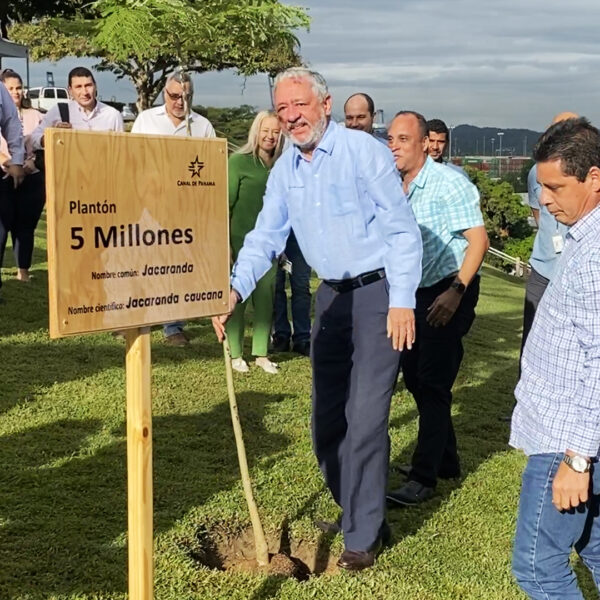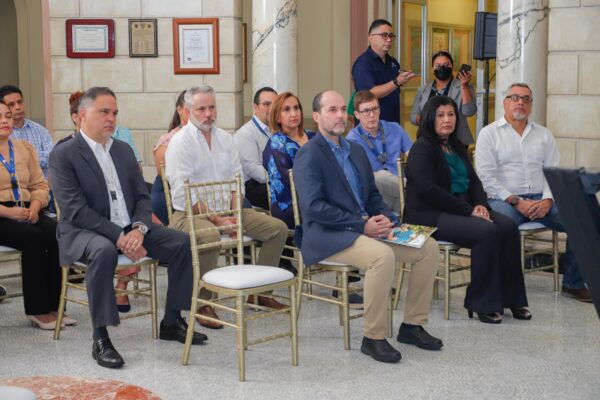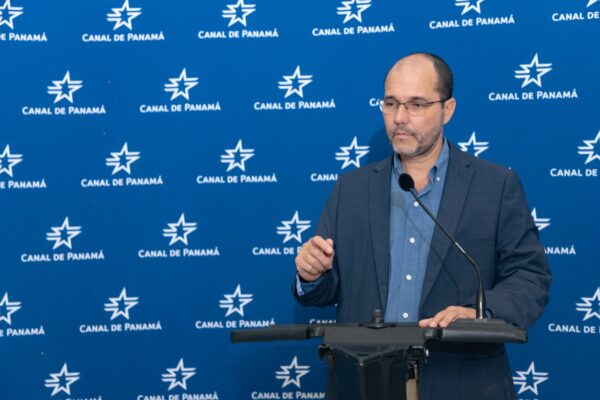The Canal celebrates 21 years of reforestation: one tree for every Panamanian
We have reached a very special goal for the country. In 21 years since the Panama Canal Economic Incentives Program […]
We have reached a very special goal for the country. In 21 years since the Panama Canal Economic Incentives Program (PIEA) began, some five million trees have been planted in areas belonging to the Canal Watershed. This figure is of great significance and symbolism because it represents one seedling for each Panamanian, mainly for the purpose of protecting the environment and, consequently, the water resource.

With the planting of this “five millionth tree” of the Jacaranda caucana species that will grow in the vicinity of the Canal Administration Building, an extraordinary milestone has been achieved which, in the words of Administrator Ricaurte Vásquez Morales, “has been possible thanks to the support and passion provided and transmitted by the residents of the communities in this area, and to the hard work and commitment of the Canal specialists who advise them.”
Recognizing that sustainable development is based on three pillars: social, economic and environmental, these areas seek to improve production systems, transmit new knowledge and improve the socioeconomic conditions of the beneficiaries, while protecting the soil and water resources. In this sense, the PIEA has allowed the reforestation of 10,846 hectares, in accordance with the Canal’s constitutional responsibility for the administration, maintenance, use, and conservation of water resources.

Of the total reforested hectares, 3,650 correspond to agroforestry (coffee, cocoa and fruit trees) and 4,776 to silvopastoral (cattle farms). It is important to note that all this effort was carried out on the farms of producers located in strategic regions of the Canal watershed, most of them rural. The remaining 2,420 hectares have included reforestation for conservation and commercial purposes, as well as enrichment of bushes to establish new forest plantations, mainly within national parks, river courses, Canal heritage areas, and strategic zones.
Community participation has been key and, since 2020, organized communities have been in charge of providing seedlings for the PIEA, producing 367,000 seedlings to date. This amount translates into an income generation of around B/. 220,000.

The programs implemented include community participation and involvement, and have the primary objective of promoting the sustainable development of the Canal watershed and protecting water resources through the proper use of the land, the improvement of agricultural techniques and the improvement of the beneficiaries’ income, through support for the improvement of post-harvest processes and support for the marketing of agricultural products.
An example of this can be seen in the last harvest, when coffee growers in this region sold some 14,000 quintals of coffee, after receiving training through Canal programs and the use of new technologies.
For the Panama Canal, the communities of the Panama Watershed are fundamental for water conservation because, as allies, they share the task of caring for the environment where the water resource is located to guarantee water for local uses in their communities and its availability for the consumption of 55% of the country’s population and the operation of the waterway.